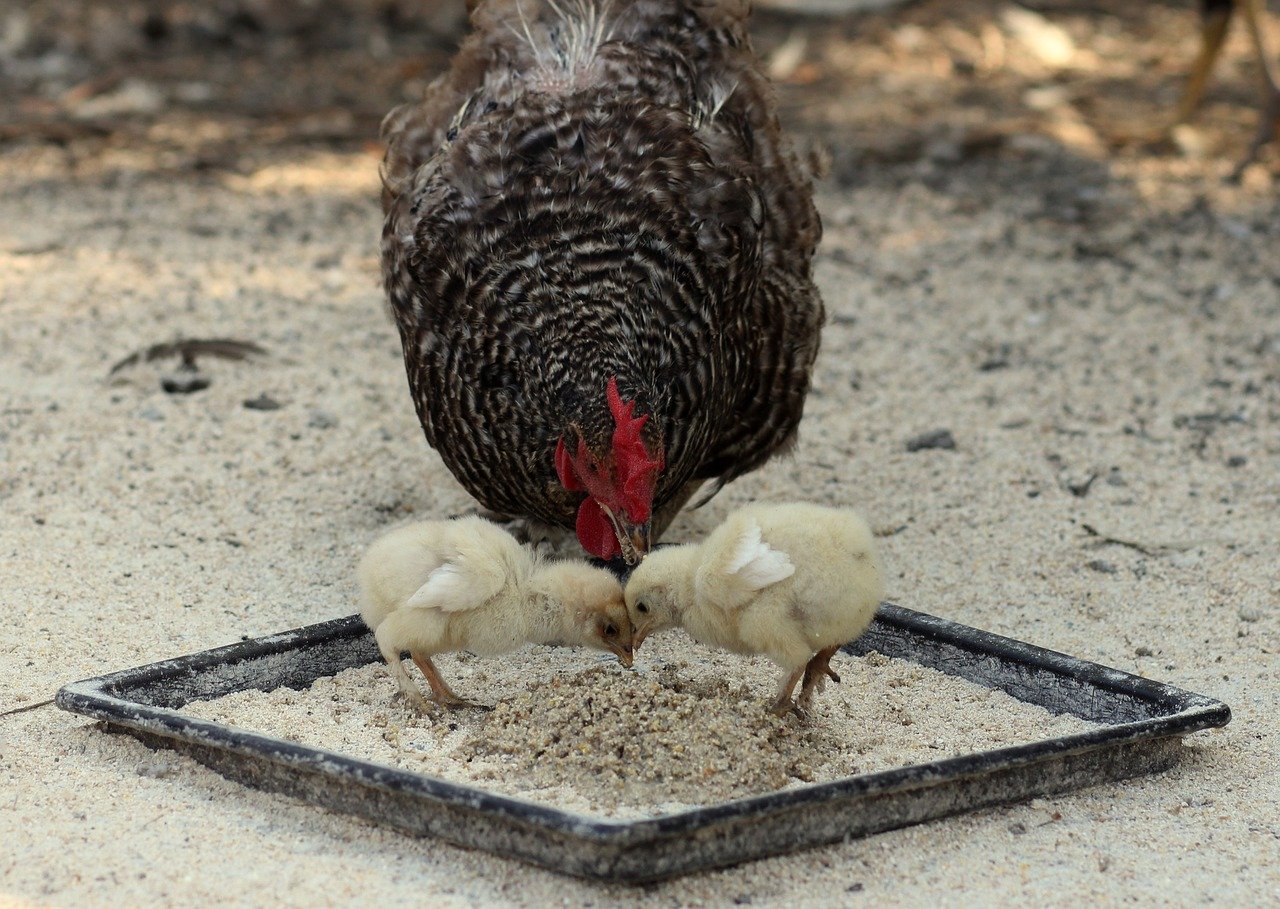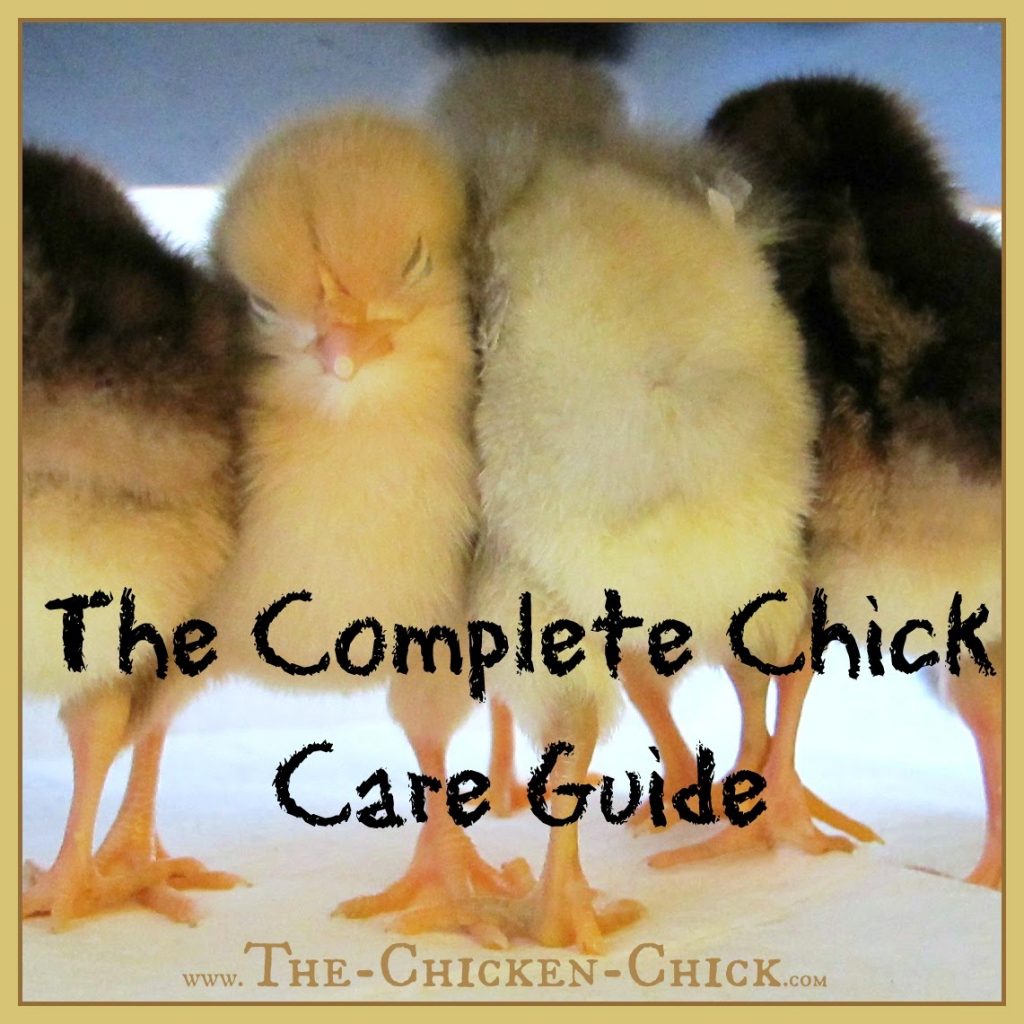Feeding Baby Chicks: Complete How-To Guide

You’ve decided to take the plunge and raise your own chickens. Congratulations! One of the first things you’ll need to do is learn how to properly feed baby chicks.
This can seem daunting at first, but with a little bit of knowledge and preparation, it will be a breeze. Here’s everything you need to know about feeding baby chicks.
If you’re thinking about raising chickens, you’ll need to know how to properly feed them. Chicks require a higher protein diet than adult birds, and they also need access to fresh water at all times. Here’s a complete guide to feeding baby chicks:
Chicks require a high-protein diet, so you’ll need to purchase a special chicken feed that’s made for them. You can find this type of feed at most farm supply stores. Make sure to provide your chicks with plenty of fresh water at all times – they will drink A LOT!
When it comes to feeding baby chicks, less is more. Start with small amounts of food and increase as needed. Chicks will let you know when they’re hungry – they’ll start pecking at their food bowls!
As your chicks grow, they’ll eventually transition to an adult diet. At this point, you can start mixing in some scratch grains and other treats into their meals. Just make sure not to overfeed them – chickens don’t have the best digestive systems!
Baby Chicks – Beginner's Guide
Feeding a Baby Chick
There are a few things to keep in mind when feeding baby chicks. First, they need a high protein diet to help them grow. This can be found in commercial chick starter feed, which can be purchased at your local farm supply store.
Second, they need access to fresh water at all times. A small waterer with a chicken nipple is perfect for this. Finally, you will need to offer them grit, which helps them digest their food properly.
Grit can be found at your local farm supply store as well.
Chicken Feeding Guide
As a chicken keeper, it’s important to know how to properly feed your chickens. Here is a helpful guide to ensure that your chickens are getting the nutrition they need.
Chickens are omnivores, which means they will eat both plants and animals.
However, the majority of their diet should be plant-based. A good chicken feed will contain a variety of grains, seeds, and greens.
When it comes to grain, you can either purchase a commercial chicken feed mix or make your own mix at home.
If you choose to make your own, be sure to include a variety of grains such as wheat, oats, barley, and rice. You can also add some dried beans for extra protein. Seeds are another great source of nutrition for chickens and can be found in most bird seed mixes.
Be sure to include plenty of greens in your chicken’s diet as well. Fresh grass is always a favorite, but you can also offer them dark leafy greens like kale or spinach.
In addition to fresh food items, you can also supplement your chicken’s diet with scratch grains or grit .
Scratch grains are simply whole grains that have been cracked into smaller pieces. They provide chickens with essential nutrients and help keep them warm in colder weather . Grit is made up of small rocks and minerals that help grind down food in the chicken’s gizzard .
It’s especially important for young chicks who haven’t yet developed their own grit supply .
offer Your chickens need access to clean water at all times . A simple bowl or trough works fine , but if you live in an area with hot summers , you may want to consider investing in a automatic waterer system .
This will help keep their water clean and cool during the hotter months .
What to Feed Baby Chickens After Hatching
If you’ve just hatched baby chicks, congratulations! These little fluff balls are so adorable and full of life. But now that they’re here, you might be wondering what to feed them.
Chickens are omnivores, which means they eat both plants and animals. However, baby chicks need a diet that is high in protein to help them grow big and strong. The best way to provide this is by feeding them a commercial chick starter feed.
This can be found at your local farm supply store or online.
Chick starter contains all the nutrients that baby chicks need to grow into healthy adults. It is usually made from a mix of grains, soybean meal, and vitamins/minerals.
You will also need to provide fresh water for your chicks at all times. A simple waterer like this one will work great.
Once your chicks are about 6 weeks old, you can start slowly introducing them to other foods such as chopped vegetables, fruits, bugs, etc.
What to Feed Baby Chicks Homemade
When it comes to feeding baby chicks, there are a few things you need to keep in mind. First, you need to make sure that the food is easily digestible for them. This means avoiding anything that is high in fiber or sugar.
Second, you need to make sure that the food is full of nutrients that they need to grow and thrive.
One of the best ways to ensure that your baby chicks are getting all of the nutrients they need is to feed them homemade food. This can be either store-bought or made from scratch using specially formulated chick feed.
Store-bought feed will usually come in a powder form, which just needs to be mixed with water before being fed to the chicks. If you opt for making your own feed, there are a few recipes available online or in chick care books.
When it comes time to actually feeding the chicks, you can do this by placing the food in a shallow dish and letting them peck at it as they please.
It’s important not to overfeed them, as this can lead to digestive problems. A good rule of thumb is to offer them about 1 teaspoon of food per day for every week old they are. So, for example, if your chicks are two weeks old, you would give them two teaspoons of food per day.
As your chicks grow older and their appetites increase, you can start giving them larger portions of food and adding more variety into their diet.

Credit: the-chicken-chick.com
How Do You Feed Baby Chicks?
When you first get your baby chicks, they will need to be fed a special diet of chick crumbs which you can buy from most pet stores. They will also need access to fresh water at all times. It is important to make sure that the food and water bowls are not too deep for the chicks as they can easily drown in them.
You should also put some grit in their food bowl as this helps them with their digestion.
As the chicks grow older, you can start to introduce them to other foods such as chicken pellets, chopped up vegetables and even some cooked rice or pasta. Always make sure that they have access to fresh water and grit though.
How Many Times a Day Do You Feed Baby Chicks?
You should feed baby chicks three to four times per day. The amount of food will depend on the age and size of the chicks. For example, a one-day-old chick will need about ¼ teaspoon of feed, while a three-week-old chick will need about 1 tablespoon of feed.
How Much Feed Should I Give My Chicks?
When it comes to feeding chicks, there is no one-size-fits-all answer. The amount of feed you give them will depend on a number of factors, including their age, breed and activity level.
As a general rule of thumb, you should start by giving them 1/4 cup of feed per day.
This can be increased to 1/2 cup per day as they get older and need more food. Always make sure they have access to fresh water at all times.
If you’re unsure how much to feed your chicks, ask your veterinarian or local poultry expert for guidance.
How Should I Feed Baby Chickens to Ensure Their Proper Development?
When it comes to the baby chicken production process, feeding plays a crucial role in ensuring their proper development. Provide a balanced diet consisting of high-quality starter feed specifically formulated for young chicks. Supplement this with fresh water, grit, and occasional treats like vegetables. Monitor their growth and adjust their feed accordingly to nurture healthy baby chickens.
How Soon Do You Feed Baby Chicks After Hatching?
If you are hatching your own chicks, you will need to provide them with food and water as soon as they hatch. It is best to wait until all of the chicks have hatched before feeding them, so that they all get a chance to eat and drink.
You can give them a special chick feeder and waterer, or just use a shallow dish for food and a small bowl for water.
The important thing is to make sure that the food and water are easily accessible to the chicks.
As soon as they start eating and drinking on their own, you can begin slowly transitioning them to a more adult diet. This process should take place over the course of several weeks, until they are fully feathered out and ready to go into the coop.
Conclusion
When you’re ready to start feeding baby chicks, there are a few things you need to know. First, you’ll need to purchase a quality chick starter feed. This is a specially formulated food that contains all the nutrients your chicks need to grow and thrive.
Next, you’ll need to set up a chick waterer. This is a shallow dish filled with clean water that your chicks can access at all times. Be sure to check the water level frequently and refill as needed.
Once your chicks have access to food and water, they should start eating and drinking on their own within a day or two. However, you may want to offer them some small pieces of chopped hard-boiled egg or other protein-rich foods as an occasional treat.
With proper care, your baby chicks will quickly grow into healthy chickens!